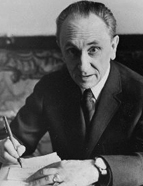

This idea of the need to refocus the historical vision on certain values will be constant and is symptomatic of the considerations he will make in the early 1940 s in relation to the Portuguese historiography that precede d him: Ameal praises Fernão Lopes and Alexandre Herculano in particular – something common to other historians from different walks of life , such as António José Saraiva, for example. And he does so because, in his opinion, they managed to transmit to posterity ‘the life of their times and not, as others have done, just a skeleton of political successes and famous names’. To these names , he adds a series of others from the 16 th to the 18 th centur ies , such as João de Barros, Jerónimo de Osório, Francisco de Andrade or Friar Manuel do Cenáculo. As for the 19 th century, he sees it, along traditionalist lines, as a bivalent period, segmented between those he classifies as ‘objective’ historians (the Viscount of Santarém, the aforementioned Herculano – although not as the author of História da Origem e Estabelecimento da Inquisição [History of the Origin and Establishment of the Inquisition] , Rebelo da Silva, Gama Barros, Alberto Sampaio; and the ‘pamphleteers’ from different quarters – such as Agostinho de Macedo or Pinheiro Chagas and Latino Coelho). Very critical of Oliveira Martins, he described him as a ‘poet or visionary of H istory’ ( Porque escrevi …[Why I wrote…] , p. 25). It was in a certain historiography from the beginning of the 20 th century that he finally found a ‘reaction’ to the polarity of the 19 th century: ‘A new examination of the sources is being carried out. In the light of a concept of man that cannot stand the narrow limits of rationalism divorced from reality, a scientism divorced from the human, a positivism divorced from metaphysics (…) ’ ( Perspectivas da História [Historical Perspectives] , 1960, p. 27).
This work is financed by national funds through FCT - Foundation for Science and Technology, I.P, in the scope of the projects UIDB/04311/2020 and UIDP/04311/2020.
